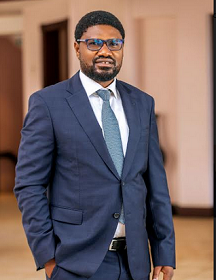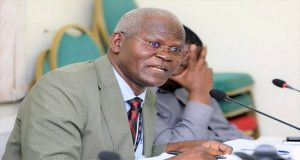
By Ali Ssekatawa
We do not usually think of history as being shaped by silence, all that is necessary for evil to prevail is for a few good men to do nothing.
The United Nations Climate Change Conference (COP28) kicked off in earnest on November 30 in the United Arab Emirates city of Dubai. It marked a pivotal moment with the agreement of over 200 nations to establish a fund aimed at assisting countries affected by the impacts of global warming—a landmark decision hailed as “historic”.
During the inauguration, the Emirati host underscored the necessity of fossil fuels as an integral component of any forthcoming climate agreements over the following two weeks.
This gathering represents a promising start, emphasising a commitment to addressing loss and damage while maintaining momentum for a just transition. Unlike the approach of COP26, which advocated for phasing out fossil fuels, COP28 acknowledges the imperative to ensure an inclusive debate on energy transition.
The recent tumultuous global landscape shaped by the Russia-Ukraine conflict and the enduring COVID-19 pandemic highlighted the need to reevaluate the energy transition strategy, previously advocating for a complete cessation of fossil fuel usage. The unprecedented surge in energy prices significantly impacted the Global North, underscoring the immediate necessity for energy security across both developed and developing nations.
This paradigm shifts within the Global North, historically championing energy transition discussions despite being leading Green House Emitters, has unveiled new realities.
In late July 2023, British Prime Minister Mr Rishi Sunak announced plans for numerous exploration licenses in the North Sea, drawing criticism from environmental activists. This move emphasised the pressing need for energy security amidst mounting opposition to fossil fuels.
Consequently, the discourse has evolved, pivoting towards exploring technologies capable of substantially reducing greenhouse gas emissions and decarbonising the oil and gas sector. This shift presents an opportune moment for Africa to reinforce its stance on a just energy transition.
Fortunately, Uganda has already embarked on a trajectory to decarbonise its projects. The Uganda projects not only create economic prosperity but also showcase the country’s commitment to long-term sustainability by putting people, and the planet, at the forefront.
Uganda, like most developing countries, is a low-carbon emitter, and is committed to decarbonising its oil and gas projects. Decarbonisation is lowering or eliminating carbon dioxide (CO2) and other greenhouse gas emissions related to oil and gas extraction, production, and usage.
The East African Crude Oil Pipeline (EACOP), the Kingfisher Development Area, and the Tilenga projects have been meticulously designed with cutting-edge technology aimed at significantly curtailing greenhouse gas emissions.
Uganda, among several emerging oil and gas producers, has encountered opposition from ‘ideologically bankrupt’ activists advocating for developing nations to entirely halt their project development. However, the stance at COP28 appears more nuanced, suggesting a shift towards a potentially more sustainable approach to energy transition, one that acknowledges the unique challenges faced by the Global South, particularly grappling with energy poverty.
In Dubai, Uganda and other African nations aim to forge collaborations with countries that have recognised the paramount importance of prioritising energy security. This perspective underscores the notion that any discourse pertaining to energy transition must holistically consider ending energy poverty through reparations for loss and damage, while championing a just energy transition.
COP28 signifies a departure from a one-size-fits-all approach, signalling a willingness to factor in the diverse needs of countries in the Global South still combating the pervasive challenges of energy poverty. This evolving discourse emphasises the necessity of a balanced, inclusive strategy that doesn’t merely advocate cessation but aligns with the imperative of equitable access to sustainable energy resources.
This platform serves as an opportunity for Uganda and other African nations to advocate for a model that integrates the aspirations of energy security with responsible environmental stewardship.
As I join the African negotiation team in Dubai, we shall advocate for an inclusive approach to energy transition based on the unique circumstances of each country. History will judge us fairly.
Ali Ssekatawa is the Director Legal and Corporate Affairs at the Petroleum Authority of Uganda








